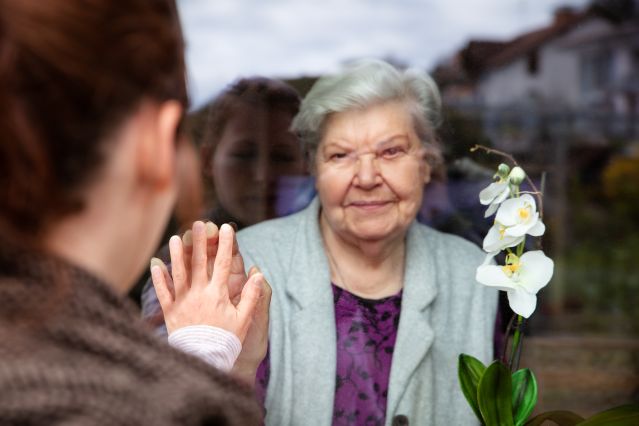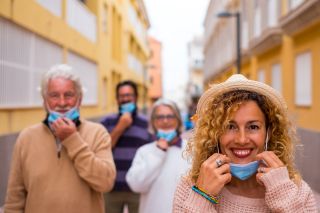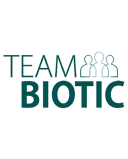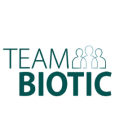Microbiome
Friends With Benefits
COVID lockdown affected microbiome diversity and well-being.
Posted March 1, 2023 Reviewed by Hara Estroff Marano
Key points
- COVID infection disrupts the gut microbiome.
- COVID infection reduces brain volume and gray matter.
- Lockdown isolation significantly impacted social networks and mental wellness.
- Supporting the gut-brain axis will help normalize mood and support social reintegration.
We Are Social Creatures

Research has demonstrated that a primary predictor of physical and mental wellness, as well as longevity, is the quality and quantity of our intimate relationships. In fact, other lifestyle aspects, such as diet, weight, alcohol intake, and environmental contaminants, including poor air quality, appear to influence health and happiness to a much lesser degree.1,2
Interestingly, investigators have also revealed that individuals with more robust social networks typically have a more diverse gut microbiome, leaving more isolated, less microbially diverse individuals at higher risk for greater stress and anxiety.3 Gut microbiome diversity has even been correlated with higher levels of sociability in our neonatal years.4 And this phenomenon is not limited to humans. Primate studies have actually shown that microorganism sharing (horizontal transmission) through social interaction results in greater gut microbiome diversity than mother-to-infant microbe sharing (vertical transmission) in chimpanzee societies.5
The explanation for the relationship between microbial diversity and social behavior is still being elucidated, but it is assuredly multifactorial. The ability of a balanced and diverse microbiome to effectively modulate inflammation and resist pathogens,6 as well as clear toxins and balance neurotransmitters, must certainly play a role.
A significant amount of research has been conducted that definitively associates COVID (SARS-CoV-2 )with decreased gut microbiome diversity and related disorders.7,8,9
This post, however, will dive into how the social isolation resulting from COVID lockdown took a toll on our gut-brain axis.
The Impact of Social Isolation
Dunbar’s number indicates that humans cannot cognitively manage a meaningful social group larger than 150. Although the number itself has been disputed,10it is clear that an individual’s social needs vary according to personality type and intrinsic characteristics, with women having closer social networks than men11 and extraverts operating in larger social networks than introverts.12 Social network size also varies with age.13
But for all of us— regardless of sex, age, or existing social network size—who were forced to endure a protracted period of relative and sometimes absolute isolation, our social habits were significantly impacted by COVID. And although technology is a tool that helped keep us productive and virtually connected, it did not significantly mitigate the loneliness and depressive feelings associated with the lockdown, especially for older adults who may have had less access and/or comfort with technology tools.14
Although there are few longitudinal studies on the impact of COVID infection on the brain itself, one such investigation in the UK evaluated nearly 400 individuals who had brain scans before being infected by SARS-CoV-2 and post-recovery. The researchers found that, compared with matched controls, the COVID-infected experienced whole-brain volume and total grey matter decreases, with marked changes in the default network, suggestive of a loss of social skills and network size.15,16

Social and Physical Recovery

Forced isolation destabilizes our social network and psychosocial health. As we all navigate our new normal, reversing the physical impact of isolation can be as important as re-engaging with our social networks. One vital step is to actively rebalance the gut microbiome and revitalize the gut-brain axis.
Clean, whole-food eating, physical activity, and meditation will go a long way. Specific gut-brain-active probiotics, or psychobiotics, can also make a meaningful difference in getting back to a healthful baseline. Indeed, clinical research has demonstrated that supplementation with a psychobiotic (in this case: Lactobacillus casei W56, Lactococcus lactis W19, Lactobacillus acidophilus W22, Bifidobacterium lactis W52, Lactobacillus paracasei W20, Lactobacillus plantarum W62, Bifidobacterium lactis W51, Bifidobacterium bifidum W23, Lactobacillus salivarius W24) can not only improve mood and behavior, but can also shift brain activity in a positive direction as evidenced by functional magnetic resonance imaging.17,18
There are many probiotics available. When seeking a gut-brain-supportive probiotic (psychobiotic), find one that has undergone human trials. You want to significantly improve the likelihood that the formulation will effectively support the pathways important to recovering your social ties and network intimacy.
References
1. Holt-Lunstad, J., Smith, T. B., Baker, M., Harris, T. & Stephenson, D. Loneliness and social isolation as risk factors for mortality: a meta-analytic review. Perspect. Psychol. Sci. 10, 227–237 (2015)
2. Yang, Y. C. et al. Social relationships and physiological determinants of longevity across the human life span. Proc. Natl Acad. Sci. USA 113, 578–583 (2016)
3. Johnson KV. Gut microbiome composition and diversity are related to human personality traits. Hum Microb J. 2020 Mar;15:None. doi: 10.1016/j.humic.2019.100069. PMID: 34435164; PMCID: PMC8336012.
4. Christian L.M. Gut microbiome composition is associated with temperament during early childhood. Brain Behav Immun. 2015;45:118–127.
5. Moeller A. Social behavior shapes the chimpanzee pan-microbiome. Sci Adv. 2016;2
6. Rooks M.G., Garrett W.S. Gut microbiota, metabolites and host immunity. Nat Rev Immunol. 2016;16:341–352.
8. Wang, B., Zhang, L., Wang, Y. et al. Alterations in microbiota of patients with COVID-19: potential mechanisms and therapeutic interventions. Sig Transduct Target Ther 7, 143 (2022). https://doi.org/10.1038/s41392-022-00986-0
9. Ke, S., Weiss, S.T. & Liu, YY. Dissecting the role of the human microbiome in COVID-19 via metagenome-assembled genomes. Nat Commun 13, 5235 (2022)
10. Lindenfors P, Wartel A, Lind J. 'Dunbar's number' deconstructed. Biol Lett. 2021 May;17(5):20210158. doi: 10.1098/rsbl.2021.0158. Epub 2021 May 5. PMID: 33947220; PMCID: PMC8103230.
11. Dunbar, R. I. M. The anatomy of friendship. Trends Cogn. Sci. 22, 32–51 (2018)
12. Pollet, T. V., Roberts, S. G. & Dunbar, R. I. Extraverts have larger social network layers. J. Individ. Differ. 32, 161–169 (2011)
13. Roberts, S. G., Dunbar, R. I., Pollet, T. V. & Kuppens, T. Exploring variation in active network size: constraints and ego characteristics. Soc. Netw. 31, 138–146 (2009)
14. Robb, C. E. et al. Associations of social isolation with anxiety and depression during the early COVID-19 pandemic: a survey of older adults in London, UK. Front. Psychiatry 11, 591120 (2020).
15. Douaud, G. et al. SARS-CoV-2 is associated with changes in brain structure in UK Biobank. Nature 604, 697–707 (2022)
16. Bzdok, D., Dunbar, R.I.M. Social isolation and the brain in the pandemic era. Nat Hum Behav 6, 1333–1343 (2022). https://doi.org/10.1038/s41562-022-01453-0
17. Bagga D, Reichert JL, Koschutnig K, Aigner CS, Holzer P, Koskinen K, Moissl-Eichinger C, Schöpf V. Probiotics drive gut microbiome triggering emotional brain signatures. Gut Microbes. 2018 Nov 2;9(6):486-496. doi: 10.1080/19490976.2018.1460015. Epub 2018 Jun 14. PMID: 29723105; PMCID: PMC6287679.
18. Bagga D, Aigner CS, Reichert JL, Cecchetto C, Fischmeister FPS, Holzer P, Moissl-Eichinger C, Schöpf V. Influence of 4-week multi-strain probiotic administration on resting-state functional connectivity in healthy volunteers. Eur J Nutr. 2019 Aug;58(5):1821-1827. doi: 10.1007/s00394-018-1732-z. Epub 2018 May 30. PMID: 29850990; PMCID: PMC6647073.




